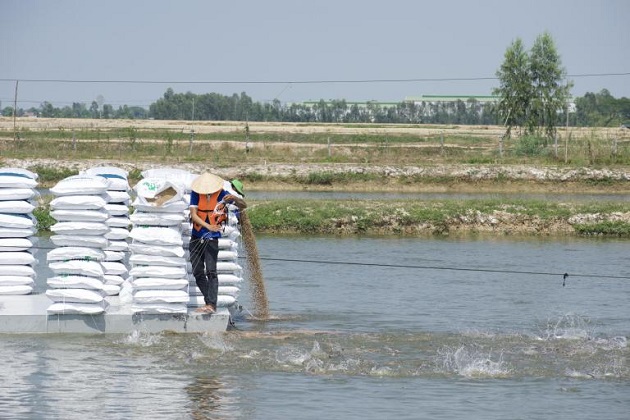
News
Feeding and Nutrition
Management
Regulations
ASC launches strict feed standards
June 15, 2021 By Nestor Arellano
 (Image from: ASC)
(Image from: ASC) The Aquaculture Stewardship Council (ASC) has just released a a new feed standard aimed at feed producers, retailers, non-government organizations, farmers and other aquaculture industry stakeholders.
The aim is to get rid of unsustainable and irresponsible practices across the aquaculture feed supply chain.
“It requires that feed mills meet strict environmental and social requirements; source ingredients from socially responsible suppliers; and use environmentally responsible raw materials,” a release from the ASC said. “In doing so, issues in both the supply chain and at raw material level are addressed.”
The standard will have a 14-month “effective period.” This will allow auditors, feed manufacturers and their suppliers to familiarize themselves with the standard and prepare for certification, according to the labelling organization which establishes protocols on farmed seafoods.
The standard will become effective on September 1 2022, when feed mills become eligible for certification. Farms will then have 24 months to switch to ASC compliant feed in order to continue meeting the ASC Farm Standards.
Feed Mills
Feed mills will be the facilities audited against the standard, but they and farms will be given time to ensure their supply chains meet ASC requirements. The standard will also incentivise more feed mills to work towards certification to meet growing demand from ASC farms.
Marine ingredients
The standard makes clear that while certified mills must source increasing levels of environmentally sustainable ingredients, marine ingredients in fact make up a minority of feed ingredients, with around 75 per cent of global aquafeed ingredients derived from agriculture – crops like soy, wheat and rice.
Terrestrial plant ingredients
For plant-based ingredients, as with marine based, mills will have to record and report all ingredients that make up over 1 per cent of a feed, and will need to take steps to ensure they have been responsibly sourced. Mills will have to assess the risk of a particular ingredient contributing towards deforestation or land conversion, and must commit to transitioning to a supply chain free from these key negative impacts.
Greenhous gas emissions
ASC certified feed mills will have to record and report their energy use and greenhouse gas emissions; and work to improve energy efficiency, use of renewables, and water usage.
Social responsibility
Mills must ensure they and their suppliers are socially responsible. For instance, independent auditors must verify that mills are not using forced or child labour, pay and treat their staff fairly, and must not discriminate on any grounds.
“Aquaculture is already providing over half of the seafood consumed around the world, livelihoods to millions of people, and without it we will not be able to achieve food security for a growing global population with a low carbon footprint,” said Chris Ninnes, chief executive office of ASC. “But this positive impact will be undone unless the feed used by the industry is sourced responsibly.”
Print this page